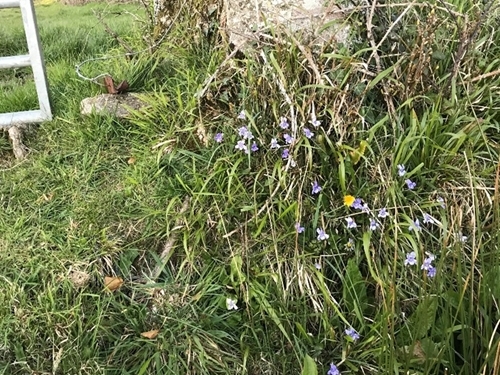By Sue Evans, Director GWCT Cymru
2 Minute Read

Last week I caught up with Welsh Governments James Owen Deputy Director, Land Management Reform Division who’s in charge of directing the new Sustainable Farming Scheme. I asked him if all the elements identified by us at GWCT such as overwinter feeding of birds, soil health and predation control would be included in the new scheme. He explained that Welsh Government is committed to co-production and another round of stakeholder engagement will take place later in the year. He explained how important it is for farmers to put their views forward to say what they believe is important to be included within the new scheme.
What about the collaborative element of the future scheme? A future collaborative scheme is intended to meet objectives set for different areas. With NRW in the newspapers today announcing the need for an “action plan for nature” and having published its State of Natural Resources Report (SoNaRR) earlier in the year NRW which is likely to provide the baseline evidence on which future objectives will be set. Its Protected Sites Baseline Evaluation has confirmed that more information is needed on nearly 50% of the species and habitats on protected sites in Wales.
The Sustainable Management Scheme which has been running for a number of years seems sadly to be very much out of favour politically and within Welsh Government largely due to continual complaints about the scheme. We have suffered, like many others at the hand of Rural Payments Wales who seems to have taken the “computer says no” approach to dealing with this collaborative scheme. They expect responses by return to their very curt emails but then take months to respond themselves. The unnecessary administration load that they have created has caused a lot of stress and has left a bad taste in the mouth of all that have taken part in this scheme. This seems sadly to have tainted the appetite for the future collaborative scheme. We have found that delivering public benefits through a collaborative scheme with an adaptive approach at landscape scale has produced outcomes over and above that which was set as each group's original objectives.
With the new scheme not expected to go live until at least 2024, we have great concerns about what will be made available to farmers in the next three years to improve biodiversity and the environment. As we’ve demonstrated with our three-legged stool approach biodiversity decline of birds on farms could be reversed using this approach in the next three years.
Further Reading: